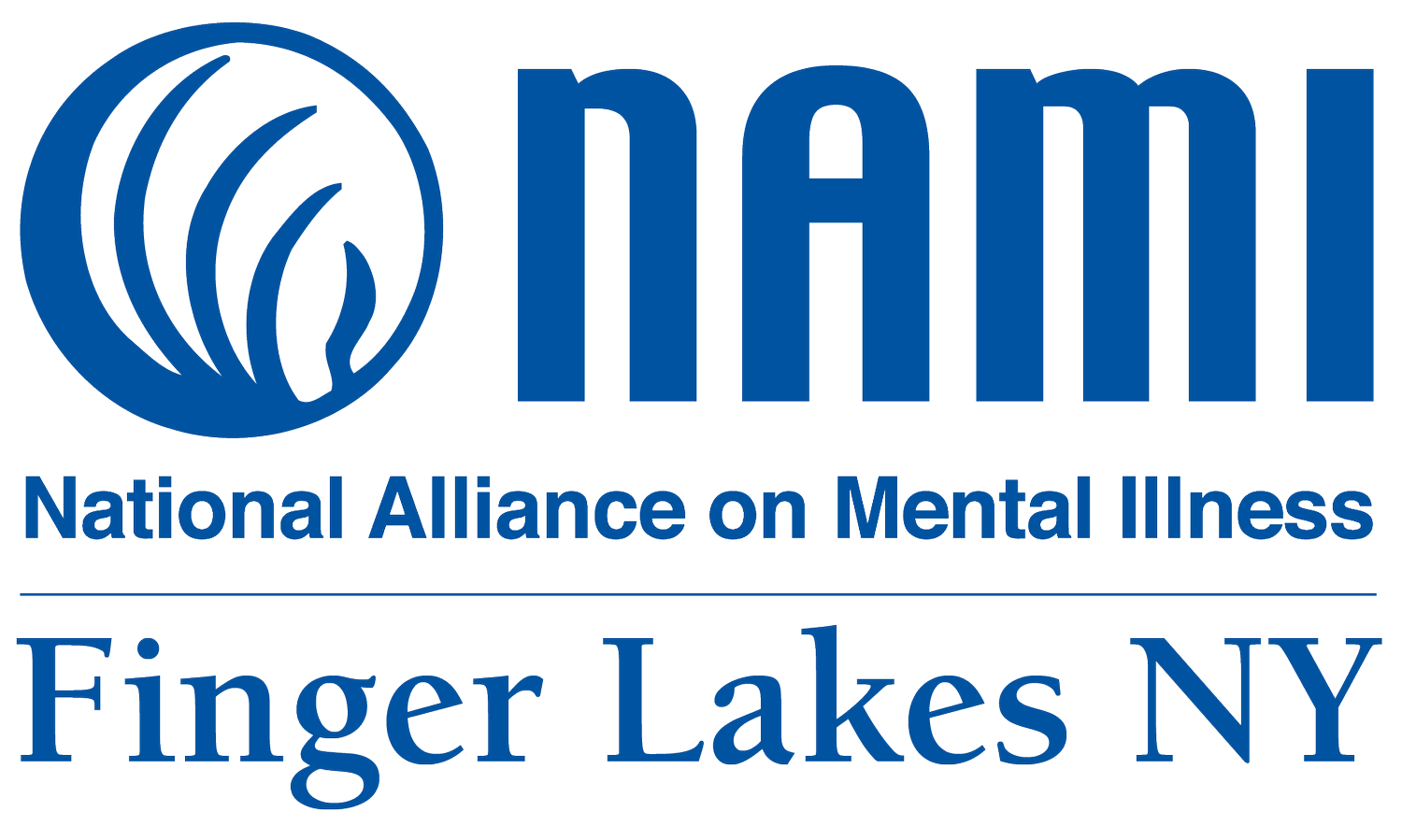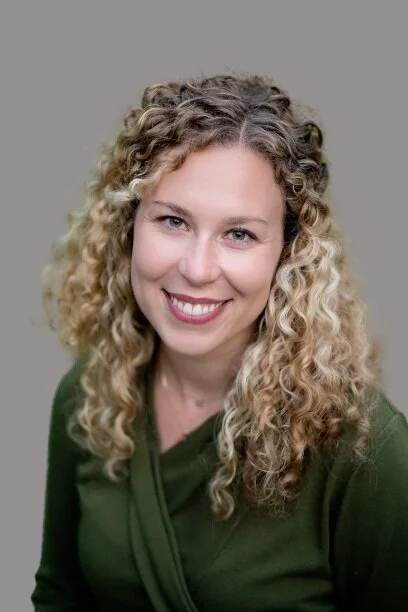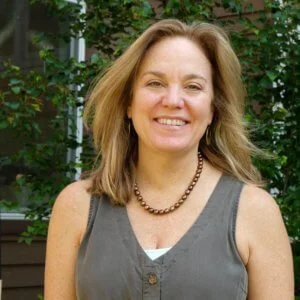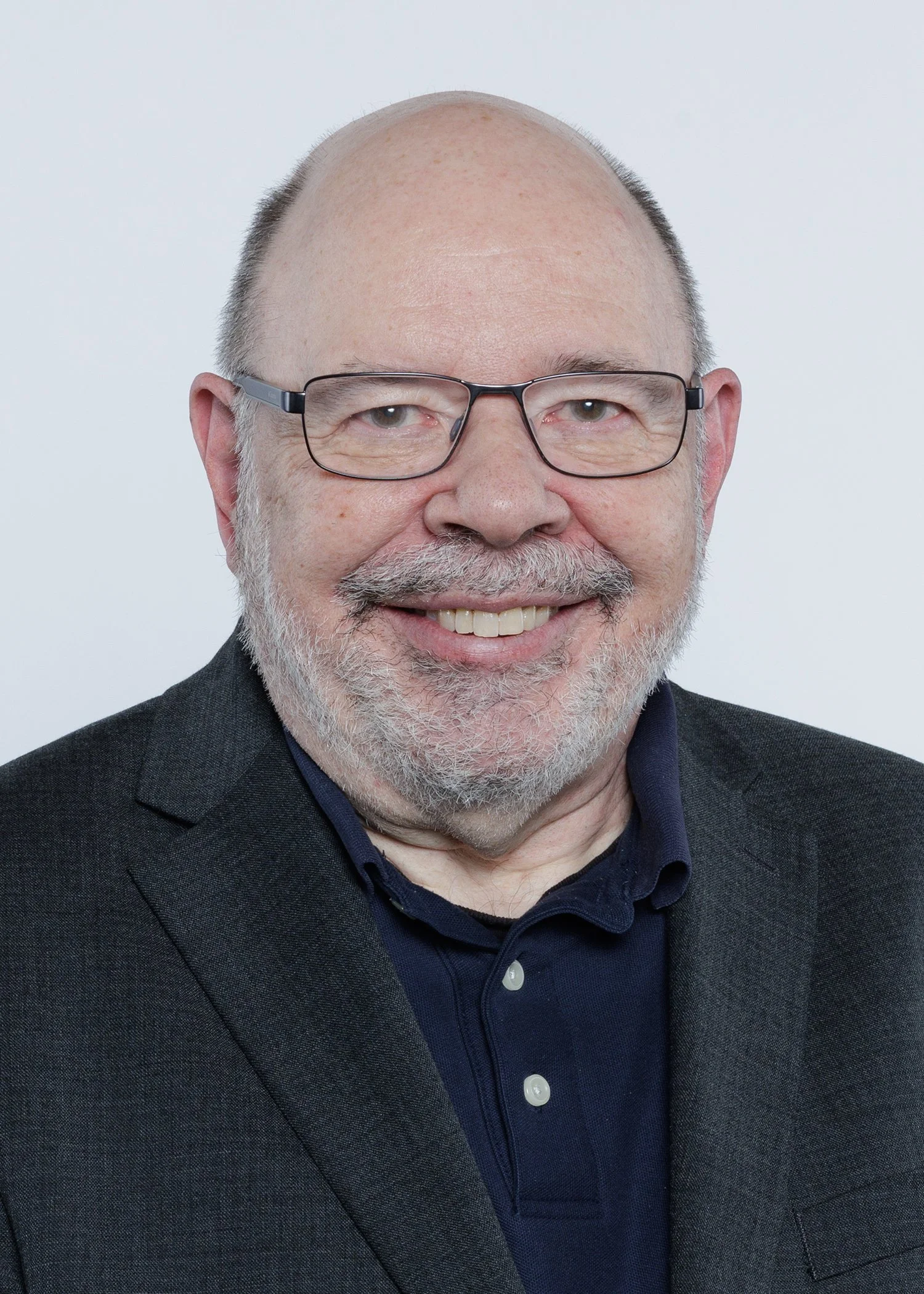
Holistic Health
Trained NAMI volunteers provide a variety of educational programs to the Finger Lakes community. With the unique understanding of people with lived experience, these programs provide outstanding free education, skills training and support.
The NAMI Finger Lakes Holistic Health Series is a program designed to educate and empower you to better manage your health — mentally and physically. There is a clear and critical need to care for mental and physical health simultaneously. Understanding this connection and synergy is vital to overall wellness.
Our Holistic Health Series returns October 2025!
Past Presentations
Navigating Childhood Anxiety: Empowering Caregivers with the SPACE Program
Dr. Katrina Blomquist, child clinical psychologist, and Liz Allen, Dean of Students at Elizabeth Ann Clune Montessori School and NAMI Program Committee Chair introduce us to SPACE, a program for caregivers of anxious children. SPACE stands for Supportive Parenting for Anxious Childhood Emotions and is a parent-based treatment program for children and adolescents with anxiety, OCD, and related problems. SPACE was developed by Dr. Eli Lebowitz at the Yale Child Study Center and has been tested and found to be efficacious in randomized controlled clinical trials. Caregivers who participate in SPACE will learn skills and tools to help their child overcome anxiety, OCD or related problems. The program focuses on changes that parents can make to their own behavior; they do not need to make their child change. The two main changes that parents learn to make are to respond more supportively to their anxious child and to reduce the accommodations they have been making to the child's symptoms.
Dr. Katrina Blomquist is a licensed clinical psychologist with advanced training in the treatment of anxiety, depression, and obsessive-compulsive disorders. She specializes in evidence-based therapies, including cognitive behavioral therapy (CBT) and exposure and response prevention (ERP), to help clients overcome obstacles and achieve their goals. Passionate about working collaboratively, Dr. Blomquist empowers children, adolescents, and adults to address challenges head-on.
An upstate New York native, Dr. Blomquist earned her undergraduate degree from Cornell University and her PhD in Clinical Psychology from Duke University. She completed her pre-doctoral internship at Seattle Children’s Hospital and post-doctoral training at the Evidence-Based Treatment Center of Seattle, with a focus on anxiety disorders. Her clinical expertise is complemented by her research on developmental relationships, including friendships and jealousy dynamics, during her graduate studies.
Dr. Blomquist is dedicated to helping families navigate mental health concerns and has extensive experience across clinical settings, including her prior role as a psychologist at Cornell University. She now practices at MindWell, where she continues to make a meaningful difference in the lives of her clients.
Liz Allen is the Dean of Students at Elizabeth Ann Clune Montessori School of Ithaca. Her role is to foster a positive and engaging learning environment, enabling EACMSI students from three to fourteen to flourish. This involves supporting students and families throughout their trajectory at the school. She works closely with teachers, Support Specialists, and other professionals as needed. In addition to her Montessori training, Liz has significant experience supporting young people and their families in dealing with mental health concerns. Since 2017, she has been on the NAMI Finger Lakes (National Alliance on Mental Illness) board and presents NAMI’s signature educational programs to families, school faculty, and students from grades K-12. Liz is also trained in SPACE, Supportive Parenting for Anxious Childhood Emotions, a parent-based treatment program for children and adolescents. Liz earned her B.A. in Mathematics from the University of New Hampshire. She has two children, both EACMSI graduates, and she lives in Ithaca with her husband.
Eating Disorders 101: Understanding the Basics and Fundamentals of Care
Cris Haltom, PhD, CEDS discusses the nature and treatment of eating disorders, which are complex mental health conditions affecting people worldwide across all races, ages, ethnicities, and genders. These disorders require a comprehensive approach that combines medical, nutritional, and psychological care from specialized professionals. While often emerging during adolescence, eating disorders can occur at any age. Anorexia nervosa, for instance, affects about 1% of the population, similar to the prevalence of schizophrenia, while other eating disorders are even more common. These conditions often lead to physical health complications, including malnutrition-related issues like bone density loss and, in women, amenorrhea. In the Western New York region alone, an estimated 20,000 to 30,000 individuals struggle with an eating disorder. Despite the challenges in treatment, recent advances have improved recovery outcomes.
Learning Objectives:
What are eating disorders, and who are the specialists involved in their treatment?
What levels of care are available, and what are some recent advancements in treatment approaches?
Why have eating disorders become more prevalent in recent years?
How does nutrition counseling differ from psychotherapy in treating eating disorders?
What are the primary goals of eating disorder treatment?
Cris Haltom, PhD, CEDS was part-time psychology faculty at Ithaca College for ten years. She is also a long-time, full-time certified eating disorders (CEDS) specialist and licensed psychologist in private practice in Ithaca, NY. She is the author of two books about teens and eating disorders, “A Stranger at the Table: Dealing with Your Child’s Eating Disorder”
(2004, Hewitt Publishing) and “Understanding Teen Eating Disorders: Warning Signs, Treatment Options, and Stories of Courage” by Haltom, Simpson, and Tantillo (2018, Routledge, Taylor and Francis Group). She was a consultant trainer to eating disorders treatment professionals at The Healing Connection and URMC in Rochester, NY throughout 2021, and she has presented multiple national and international clinical training workshops about teen eating disorder treatments, most recently for the American Psychological Association.
A Holistic Approach to Mental Health: Pharmacology, Psychotherapy, and Psychoeducation
Dr. Joseph Strayhorn, M.D., delves into the holistic approach to mental health care. This session covers essential topics such as the roles of pharmacology, psychotherapy, and psychoeducation in fostering mental well-being. Dr. Strayhorn, a board-certified psychiatrist with decades of experience, will provide valuable insights for individuals, professionals, and families navigating the complexities of mental health.
Learning Objectives:
1. To understand why both medication and psychotherapy, although very useful, are not enough to relieve the burden that mental illness poses for society.
2. To understand the difference between psychoeducation and psychotherapy, and to understand some of the reasons why psychoeducation has great promise.
3. To be familiar with one answer to the question, “What skills should we teach and learn, in promoting mental health?”
4. To be familiar with a method of psychoeducation which the speaker has been directing, which is available for children and their families.
Joseph Strayhorn, M.D. is a member of the Psychiatry Faculty Practice at Upstate Medical University in Syracuse. He is board certified in general psychiatry and child and adolescent psychiatry. He graduated from Northwestern University Medical School and did a general psychiatry residency at Duke Medical Center and a Child and Adolescent Psychiatry Fellowship at the University of Pittsburgh. In addition to using pharmacological methods, he has studied, practiced, and researched psychotherapy and psychoeducation. He is founder and owner of Psychological Skills Press, which publishes manuals aimed at increasing psychological competence. He is founder and director of the nonprofit, Organization for Psychoeducational Tutoring, or OPT, which delivers education on both academic and psychological skills to children. He has delivered direct patient care continuously for several decades. He has authored over 40 peer reviewed articles and over 20 books. He is married with two adult daughters; his wife is a cognitive behavior therapist; one of his daughters studies decision-making in intervention research, and the other is beginning a career in social work. His 2 year old granddaughter teaches a practicum in child development to him and his wife.
Breaking the Silence: A First Responder Q&A on Brain Health and Trauma
Brain health challenges are faced by all first responders—from dispatchers to law enforcement, EMS, fire, ER clinicians, parole, and probation officers, along with their loved ones. Licensed therapist Alev Ates-Barlas and USMC combat veteran and 16-year law enforcement officer Sergeant Blair MacDonald will provide answers on recognizing early warning signs, breaking the stigma, and exploring effective treatments like EMDR. This session is for anyone on the front lines, the first on the scene supporting those in crisis. You’ll also hear about the launch of Overwatch Peer Support, a resource designed to support first responders.
Learn how cumulative stress and PTSD impact both professional and personal lives, and gain practical advice on managing mental health. You don’t have to fight alone—get answers from experts who understand.
Learning Objectives:
-Identify early warning signs of mental health challenges in first responders.
-Explore trauma-informed therapeutic approaches, including EMDR, for faster recovery.
-Understand the importance of culturally competent care for first responders and their families.
-Learn practical strategies for breaking stigma and normalizing seeking mental health support within the first responder community.
-Discover the upcoming Overwatch Peer Support program and the services it will provide to support those on the front lines.
Alev Ates-Barlas is a Licensed Marriage and Family Therapist and a Certified Trauma Specialist. She is an EMDRIA approved EMDR practitioner, consultant and trainer while also an active member of an emergency response team for the states of NY and TN as she has offices in both states. She has been working with individuals, couples and families in various therapeutic settings.
Her clinical focus is on attachment ruptures, relational issues and trauma spectrum disorders; relational trauma, complex/developmental trauma, single incident trauma, chronic stress disorder as well as PTSD. Additionally, her experience so far has trained her in the treatment of depression, anxiety, family life issues, couples counseling and postpartum issues.
Blair MacDonald is a USMC combat veteran and Police Sergeant with the Cornell University Police Department, where he has served for 16 years.
Currently pursuing his MS in Mental Health Counseling, Blair is focusing on trauma recovery for first responders and veterans. With his extensive experience in law enforcement and combat, Blair brings a deep understanding of the unique mental health challenges faced by first responders.
He is also a member of the Overwatch Peer Support initiative, dedicated to breaking the stigma around mental health in the first responder community.
What’s New in Treating Obsessive-Compulsive Disorder
Obsessive-compulsive disorder (OCD) is a low-prevalence disorder that affects 1 out of every 40-50 people, but is still among the world’s top 10 causes of disability. Until recently, it has largely had just one treatment approach – exposure and response prevention (ERP), which has been shown to help a little more than half of sufferers on average. In recent years, however, there has been a host of emerging literature on both root causes and new treatment strategies for OCD, which are both well-tolerated and have been shown to be effective, particularly for the many people who don’t respond to ERP. This talk will provide an overview of all current treatment options for OCD, and where to find help nowadays.
Learning objectives:
- Learn what treatment options currently exist for OCD
- Understand how to choose the best treatment strategy for yourself or a loved one with OCD
- Know what treatment resources exist for OCD in the local area
Richard S. Gallagher, LMFT is a psychotherapist specializing in the treatment of anxiety disorders and obsessive-compulsive disorder, based in Ithaca, NY. He is a 2014 graduate of the International OCD Foundation (IOCDF)’s intensive clinical training program for OCD treatment, has presented at IOCDF national conferences, and has taught CEU programs on anxiety and OCD treatment to over 200 clinicians in upstate New York.
Rich is also the author of numerous self-help books on anxiety disorders and communications skills, including an Amazon #1 book on Anxiety and Phobias as well as a finalist for 2008 Business Book of the Year. His titles include The Contamination OCD Workbook (CBT Skills Press, 2024), The Anxiety Journal (Rockridge Press, 2022), Stress-Free Small Talk (Rockridge Press, 2019), How to Tell Anyone Anything (AMACOM/HarperCollins, 2009), and many others. Rich is licensed to practice psychotherapy in New York, Arizona, Colorado and Florida, and also provides consultation and training to clinicians and treatment facilities worldwide.








